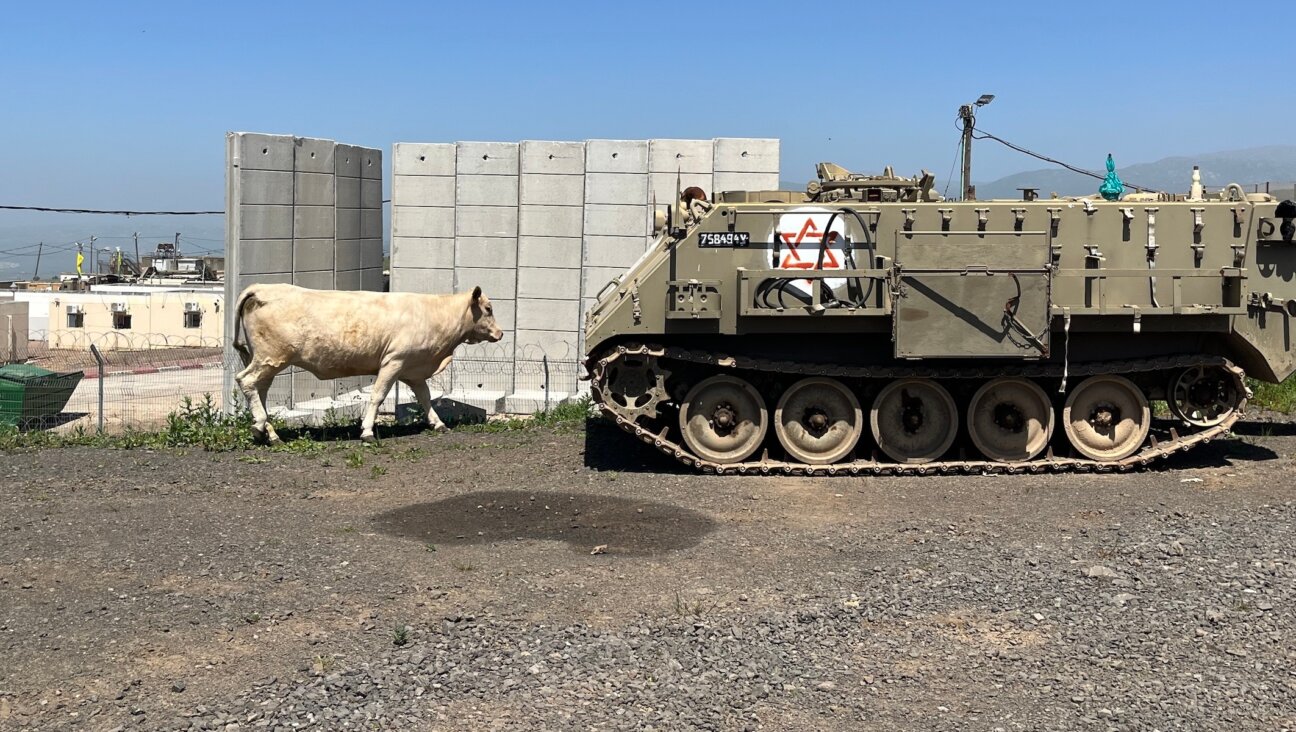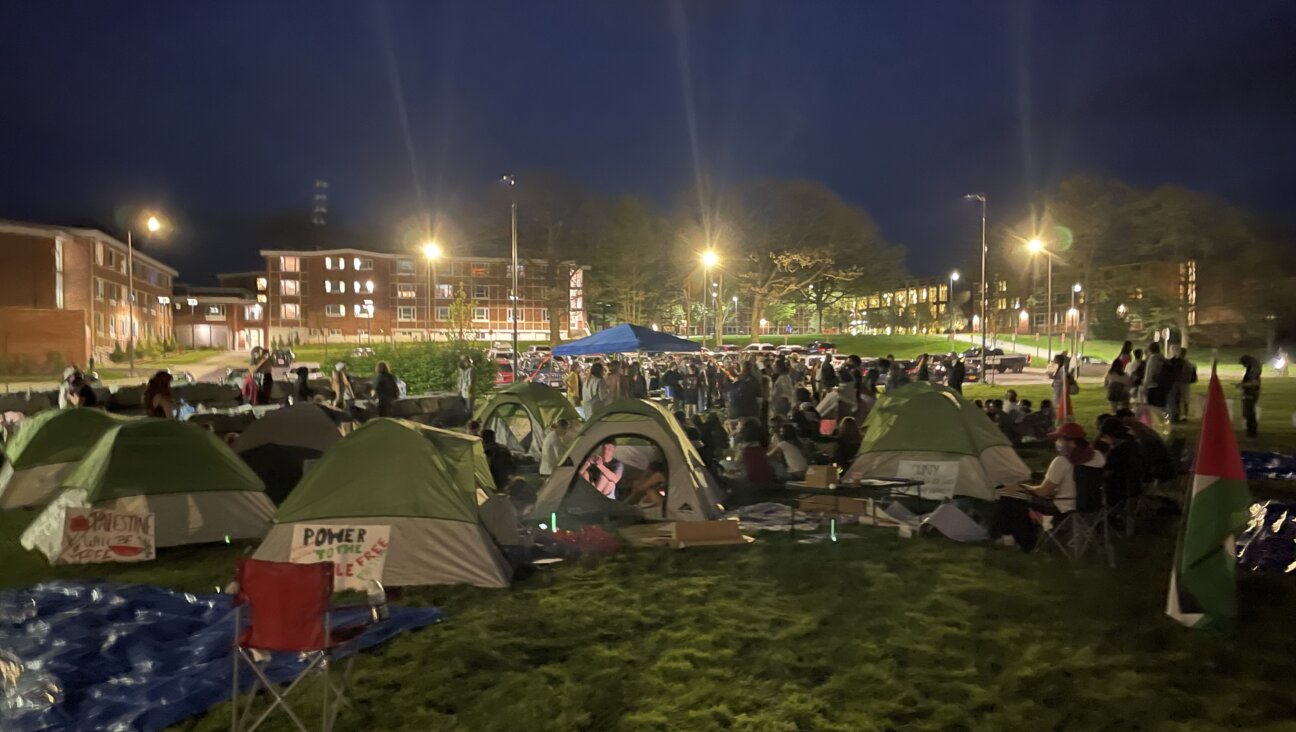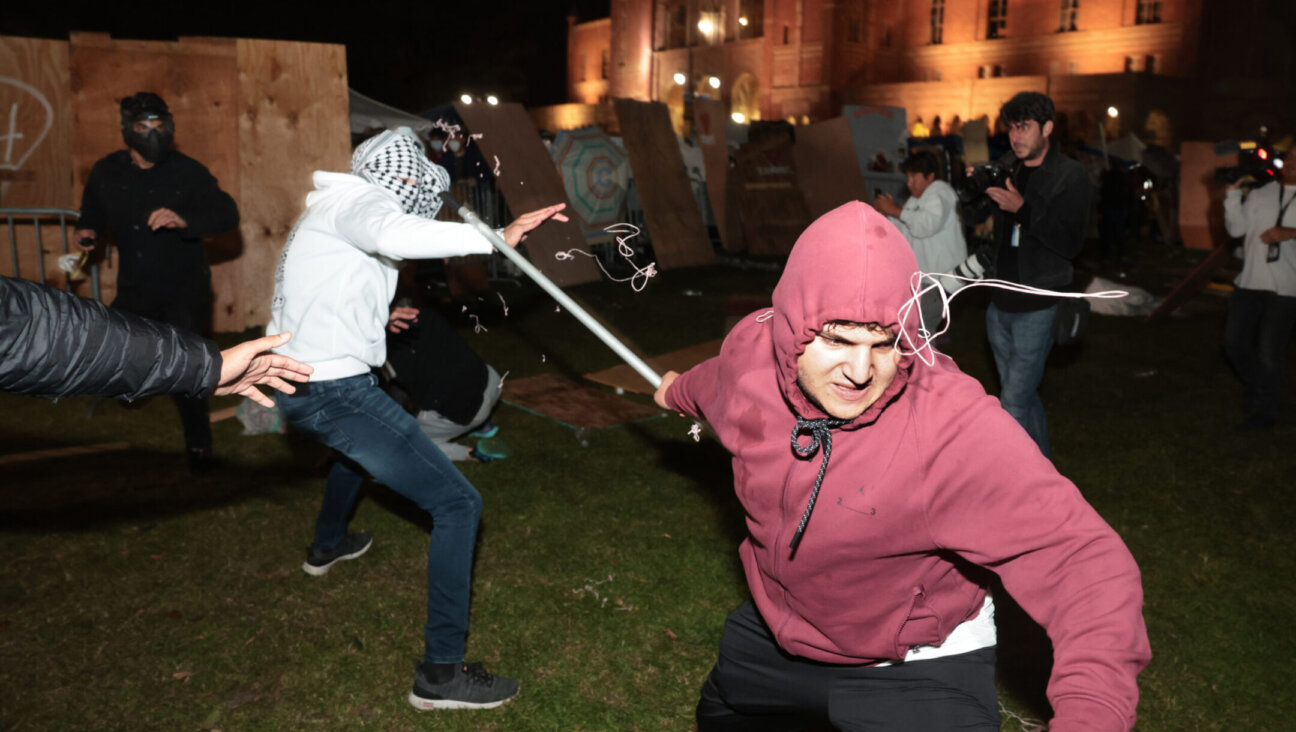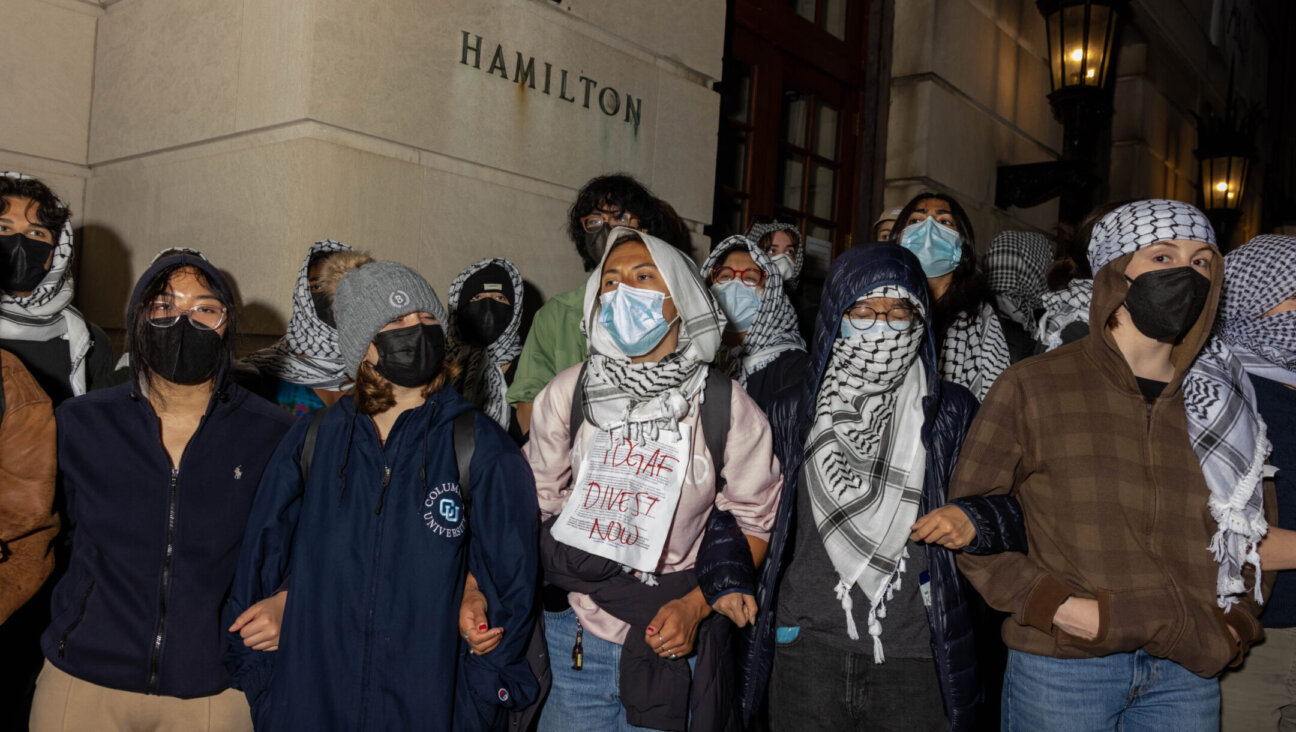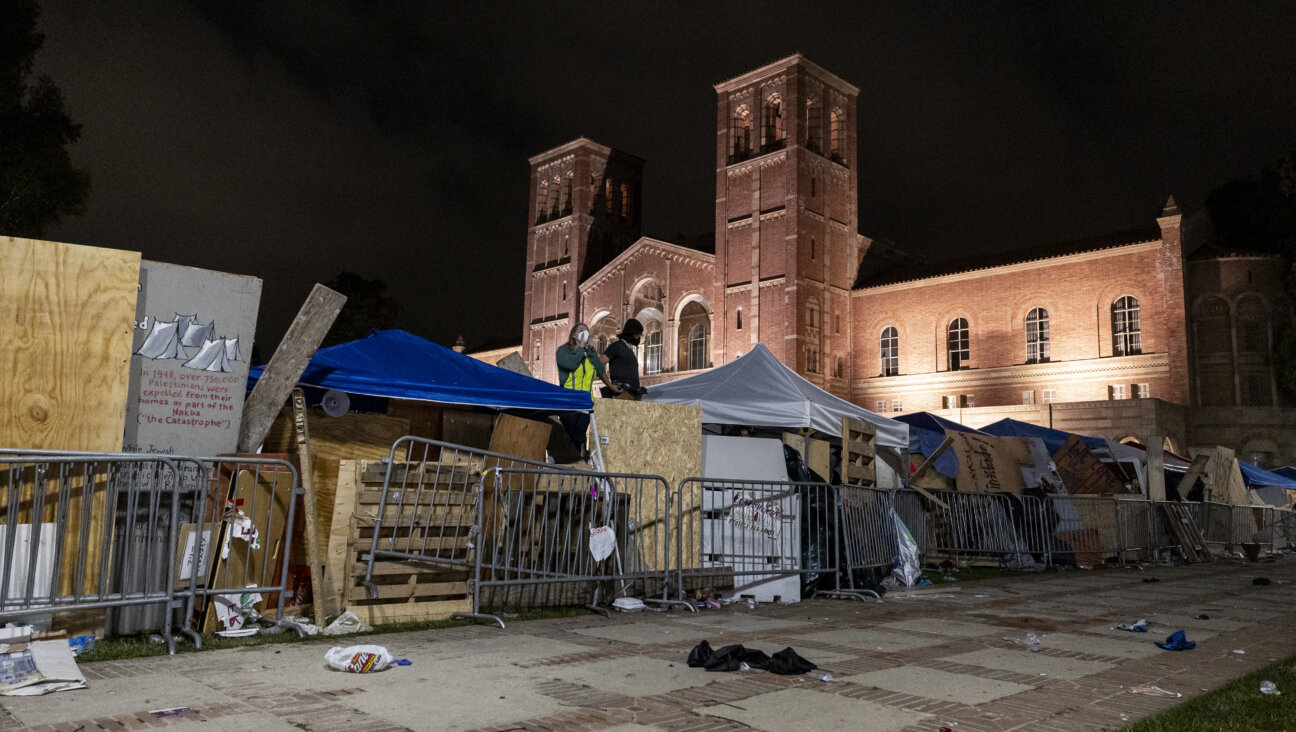Israel Moves To Shut Down Demonstrations Against Security Barrier
Palestinian activist Mohammed Khatib, who has been leading weekly protests against the path of Israel’s security barrier through his home village, Bil’in, was arrested last night in a pre-dawn raid.
The arrest — the latest in a series of late night army raids in Bil’in in which protest activists were arrested — was reported by Reuters based on a statement by the Bil’in Popular Struggle Coordination Committee, which Khatib heads.
The committee has held protests every Friday against the security barrier’s route, which splits Bil’in’s residents off from the land they own and farm. The protests typically attract to 200–300 people to the barrier, including Israeli and international supporters. While most are non-violent, some hurl rocks and projectiles at the army, which has routinely broken up the protest using tear gas canisters and rubber bullets. Scores have been injured on both sides, and one Palestinian died after he was struck in the chest by an Israeli-launched tear-gas canister last April.
In related news, Jerusalem police said Thursday that it plans on forcibly shutting down weekly demonstrations taking place in the East Jerusalem neighborhood of Sheikh Jarrah. Palestinians and left-wing activists have been non-violently — but without a permit —protesting against the legal, but nonetheless controversial, takeover by nationalist Jewish groups of Palestinian homes.
Both Khatib’s efforts and the demonstrations in Sheikh Jarrah — both profiled in the Forward this week — are part of an ongoing turn towards civil protest against selected targets by certain factions of Palestinian society. In the case of Bil’in, a senior military official told the Forward that the army planned to comply “in the next month or two” with a ruling Israel’s Supreme Court issued two-and-a-half years ago ordering the army to adjust the security barrier route at Bil’in so as to reunite the village’s residents with their land.

I hope you appreciated this article. Before you go, I’d like to ask you to please support the Forward’s award-winning, nonprofit journalism during this critical time.
Now more than ever, American Jews need independent news they can trust, with reporting driven by truth, not ideology. We serve you, not any ideological agenda.
At a time when other newsrooms are closing or cutting back, the Forward has removed its paywall and invested additional resources to report on the ground from Israel and around the U.S. on the impact of the war, rising antisemitism and the protests on college campuses.
Readers like you make it all possible. Support our work by becoming a Forward Member and connect with our journalism and your community.
Make a gift of any size and become a Forward member today. You’ll support our mission to tell the American Jewish story fully and fairly.
— Rachel Fishman Feddersen, Publisher and CEO
Join our mission to tell the Jewish story fully and fairly.








